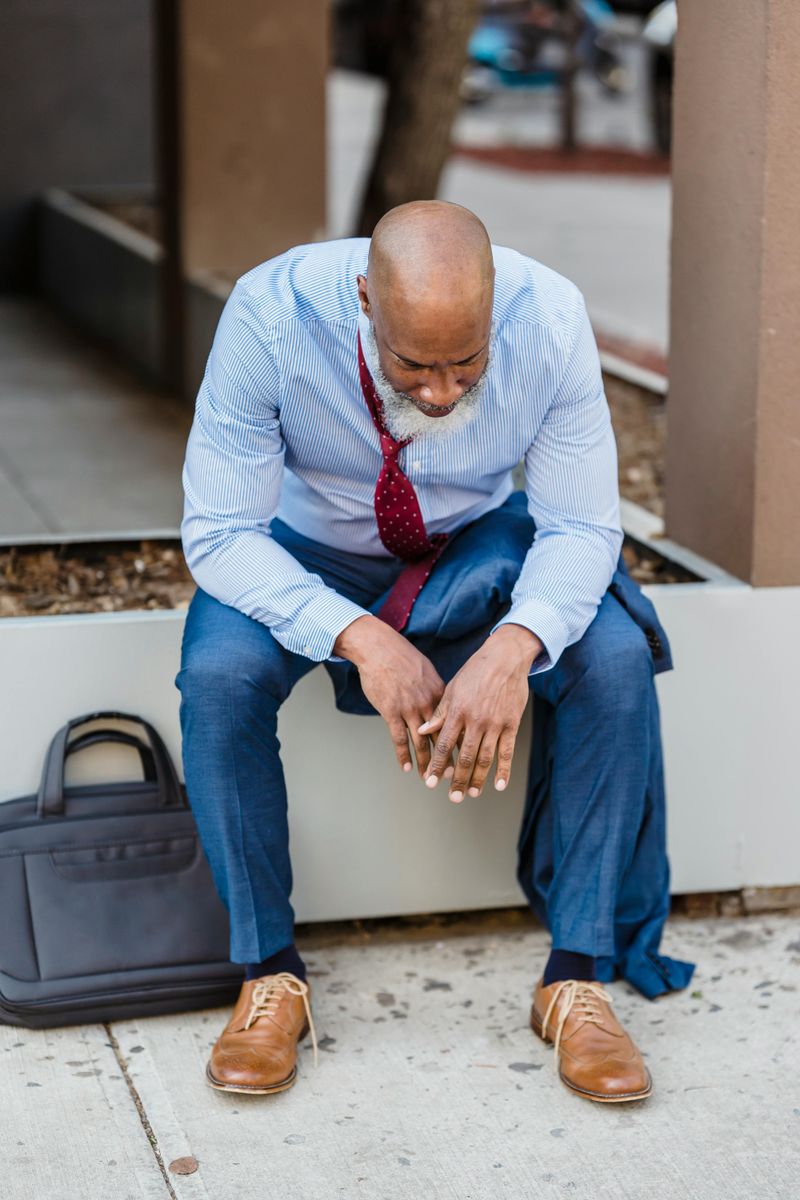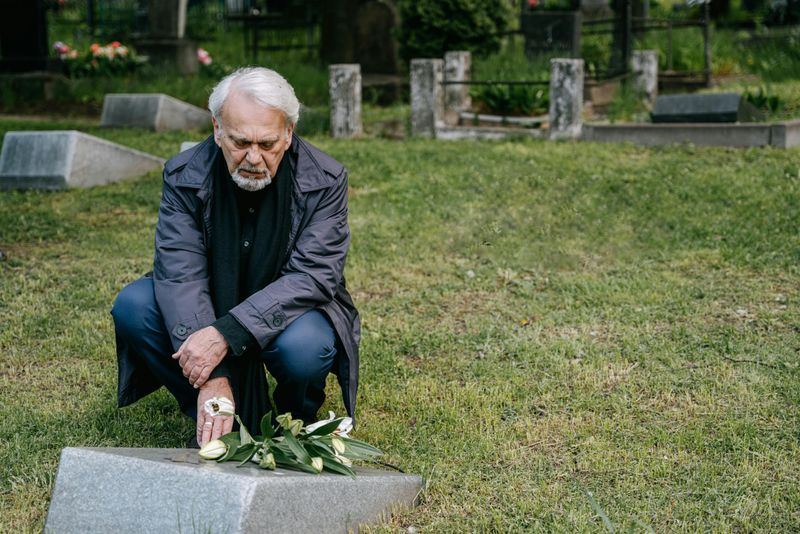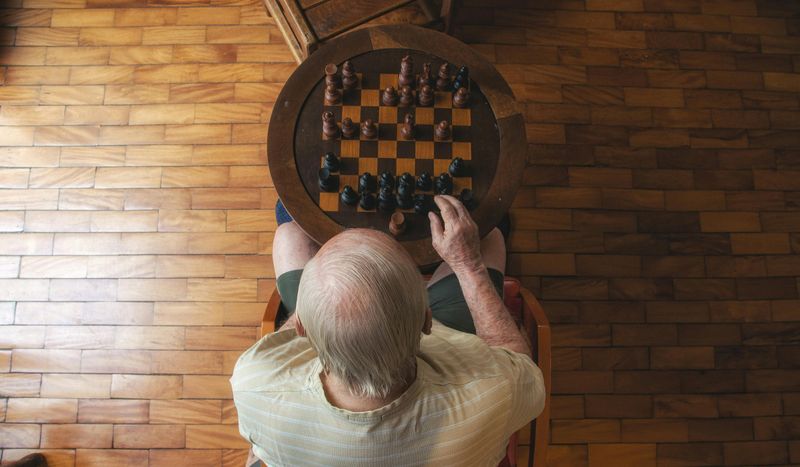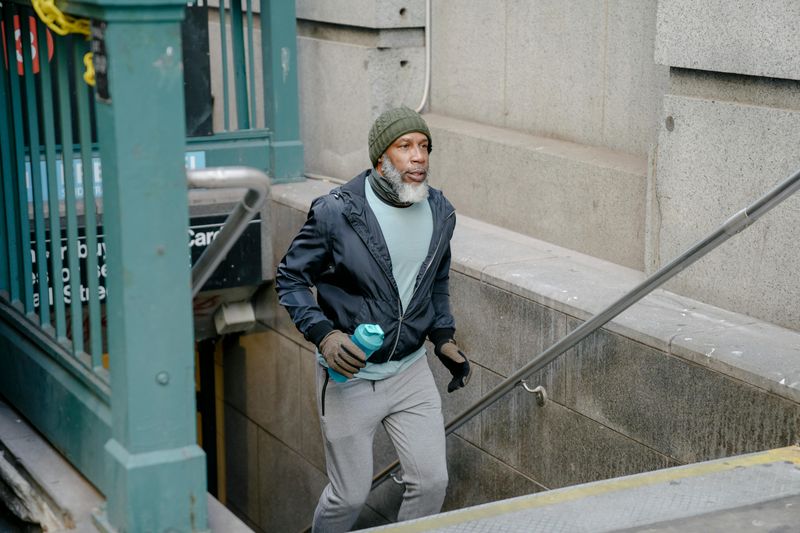15 Things Men Rarely Admit but Secretly Fear Most as They Grow Older

As men age, they face a unique set of challenges that often go unspoken. Behind the brave faces and stoic demeanors lie genuine concerns about what the future holds. These silent worries shape how men approach their later years, influencing decisions about health, relationships, and life goals. Understanding these hidden fears can help both men and those who care about them navigate the aging process with greater compassion and awareness.
1. The Fading Independence

Many men build their identity around self-reliance. The prospect of needing help with everyday tasks—driving, managing finances, or even personal care—can feel like a direct attack on their manhood.
This fear often leads to resistance against accepting necessary assistance. Men might push themselves beyond safe limits just to maintain the illusion of complete independence.
The transition from provider to recipient represents a profound role reversal that few are emotionally prepared to face, yet it remains one of the most common realities of aging.
2. Professional Obsolescence

The workplace evolves rapidly. New technologies, changing industries, and younger colleagues create a perfect storm of anxiety for aging men. ‘Am I still relevant?’ becomes a haunting question.
Men who once defined themselves by career accomplishments suddenly find their expertise outdated or undervalued. The corner office that symbolized success now feels increasingly vulnerable.
This fear manifests in various ways—working longer hours, defensiveness about new methods, or reluctance to mentor younger staff who might eventually replace them.
3. Money Worries That Never End

Financial security takes on new urgency as retirement approaches. The math becomes unavoidable: fixed income versus unpredictable expenses and potentially decades of life ahead.
Healthcare costs loom especially large. A single medical crisis can devastate even careful planning, turning golden years into a constant budgeting exercise.
What makes this fear particularly potent is the diminishing opportunity to recover financially. The runway for building wealth shortens, while the stakes—maintaining dignity and independence in old age—couldn’t be higher.
4. The Body’s Betrayal

For men who once prided themselves on physical prowess, health decline feels personal. The first heart scare, a diabetes diagnosis, or chronic pain signals the beginning of a new, unwelcome chapter.
What frightens many isn’t just illness itself but the gradual erosion of capability. Activities once taken for granted—playing with grandchildren, home repairs, sports—become increasingly difficult.
The mirror reflects this reality daily. Each new limitation serves as a reminder of mortality and the unstoppable march of time, challenging the internal image many men still hold of themselves as strong and capable.
5. Intimacy Under Threat

Sexual performance issues strike at the core of masculine identity for many men. The first experiences with erectile dysfunction or decreased libido can trigger profound anxiety and even depression.
The fear extends beyond the physical act itself. Many men worry their partners will find them less desirable or that intimacy—both physical and emotional—will fade from their relationships.
This concern often goes completely unaddressed. Rather than seeking medical help or having honest conversations with partners, many men suffer in silence, creating distance in relationships precisely when connection matters most.
6. Mirror’s Harsh Truth

The physical transformation of aging catches many men off guard. That stranger in the mirror with gray hair, wrinkles, and a thickening waistline challenges their self-image in profound ways.
Men rarely discuss these appearance concerns openly, believing vanity is unmasculine. Yet privately, many mourn their youthful looks and strength, seeing these changes as public broadcasts of their declining vitality.
This appearance anxiety influences everything from dating after divorce to job interviews. In a culture that celebrates youth, visible aging feels like wearing a badge that says ‘past your prime’—a reality few men are prepared to accept.
7. Desirability Diminished

Beyond general appearance concerns lies a deeper fear: becoming invisible to others. Men worry about losing the magnetism that once drew people to them, whether romantically, professionally, or socially.
For single men, this anxiety is particularly acute. Dating apps and social settings seem designed for youth, leaving older men questioning their place and appeal.
Even in long-term relationships, many men secretly wonder if their partners still find them attractive. This fear can lead to compensation behaviors—from fitness obsession to risky attempts at recapturing youth—that sometimes create more problems than they solve.
8. The Shrinking Social Circle

Friendships require maintenance, something many men realize too late. As retirement approaches, the workplace connections that provided daily interaction begin to disappear.
The loss hits harder when combined with friends moving away, falling ill, or passing on. Each funeral attendance brings the stark realization that one’s social network is permanently shrinking.
Making new friends grows more challenging with age. Many men find themselves unprepared for the effort required to build connections outside work, leading to a growing sense of isolation that contradicts the freedom retirement supposedly offers.
9. Becoming Someone’s Burden

The role reversal from caregiver to care recipient strikes fear in many men’s hearts. Having spent decades as providers and protectors, the prospect of dependence feels like failure.
This anxiety intensifies when men observe their partners or children making sacrifices to meet their needs. The thought that loved ones might resent these responsibilities, even while willingly accepting them, can be unbearable.
Some men respond by refusing necessary help, potentially endangering themselves. Others withdraw emotionally, trying to minimize their presence rather than risk becoming the family obligation no one wants but everyone endures.
10. Identity After Achievement

When the career ends and the children leave home, many men face an existential question: Who am I now? The roles that provided structure and purpose—professional, parent, provider—suddenly recede.
Retirement parties celebrate past accomplishments while offering little guidance for the decades ahead. Without careful planning, the freedom from work obligations can quickly transform into purposelessness.
This identity crisis explains why some men cling to work well beyond financial necessity or resist retirement planning. The fear isn’t about having nothing to do—it’s about becoming nobody in particular after a lifetime of being somebody specific.
11. The Final Countdown

Mortality awareness grows sharper with each passing year. Health scares, friends’ funerals, and milestone birthdays serve as persistent reminders that time is finite.
This fear manifests differently among men. Some respond with bucket lists and renewed vigor for experiences. Others become paralyzed by thoughts of unfinished business, unresolved relationships, or spiritual questions.
The anxiety isn’t always about death itself but about how it will happen. Many men fear a prolonged decline more than the end, worrying about pain, dignity loss, or becoming unrecognizable to themselves before the final goodbye.
12. Cultural Disconnection

The world keeps changing, leaving many aging men feeling increasingly like foreigners in their own society. Music, movies, language, and social norms evolve rapidly, creating a widening gap between generations.
Technology accelerates this disconnection. Each new platform or device presents a learning curve that seems steeper with age, potentially cutting men off from modern communication channels.
The fear of appearing outdated or out-of-touch influences how older men interact with younger colleagues and family members. Many retreat rather than risk exposing their confusion about contemporary culture, further isolating themselves from meaningful engagement.
13. Mental Sharpness Slipping Away

The first time a familiar name vanishes from memory or a routine task becomes confusing, many men experience genuine terror. These moments raise the specter of cognitive decline and potential dementia.
The fear intensifies for those who’ve witnessed parents or relatives experience Alzheimer’s or similar conditions. The prospect of losing not just memories but one’s essential self represents perhaps the most profound threat aging presents.
This anxiety often leads to hypervigilance about mental performance. Many men privately test themselves—completing crosswords, memorizing information, or monitoring their recall—seeking reassurance that their minds remain intact.
14. Physical Capabilities Fading

The gradual diminishment of strength, stamina, and agility strikes at masculine self-conception. Activities once performed without thought—yard work, home repairs, sports—become increasingly challenging.
This transition proves especially difficult for men whose identities centered on physical capability. Former athletes, tradesmen, and those in physically demanding careers often struggle most with this aspect of aging.
The fear extends beyond practical concerns into recreational realms. Many men mourn the loss of activities that once brought joy and accomplishment, from skiing black diamond runs to playing competitive sports, as their bodies no longer cooperate with their ambitions.
15. The Path Not Taken

As the runway ahead shortens, the roads not traveled loom larger in men’s minds. The business never started, the relationship that ended, the risks avoided—all become sources of quiet regret.
This reckoning feels particularly painful because of its finality. Unlike younger people who can course-correct, older men must increasingly accept that certain doors have permanently closed.
Many respond by pushing themselves toward new experiences, determined to avoid additional regrets. Others fall into reminiscence and rumination, mentally revisiting crossroads and wondering how life might have unfolded differently had they made other choices.

Comments
Loading…